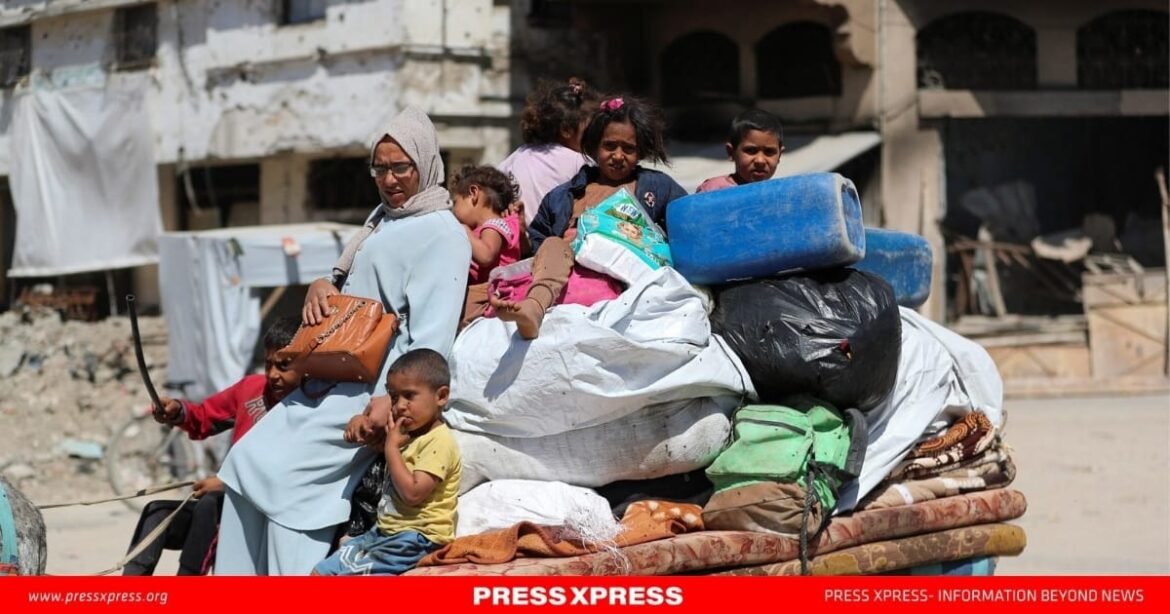Israeli forces have launched a renewed ground offensive in the Gaza Strip, seizing control of a critical section of the Netzarim Corridor while continuing extensive airstrikes on the besieged enclave. This escalation follows the collapse of a fragile ceasefire agreement with Hamas.
The Israeli military announced on Wednesday that it had regained control of the central Netzarim Corridor, a key landway connecting the north and south of Gaza, as part of efforts to expand a security buffer zone. This move aims to divide the Strip further, making it even more difficult for Palestinians to travel freely.
Just a month ago, Israeli forces withdrew from the same corridor, allowing civilians in central and southern Gaza to return to their homes in the north. However, the latest reoccupation of Netzarim is seen as a significant setback, effectively cutting off vital routes for the local population.
Hani Mahmoud, reporting from Gaza City, highlighted the implications of this military advance. “The Israeli presence here represents a clear escalation. This is not just a reoccupation; it marks a new phase in military operations within Gaza,” Mahmoud stated.
The renewed ground offensive comes on the heels of a deadly wave of Israeli airstrikes on Tuesday, which resulted in more than 400 casualties. These strikes followed accusations that Hamas rejected a revised ceasefire proposal that would have seen the release of most of the 59 remaining hostages in Gaza—many of whom are believed to be dead—without any commitment from Israel to end the ongoing conflict.
In an effort to pressure Hamas, Israel previously blocked all aid shipments and cut off electricity to Gaza, exacerbating the humanitarian crisis.
Hamas has firmly rejected Israel’s new ceasefire proposal, insisting that Israel adhere to the original ceasefire agreement signed in January. This agreement included the negotiation of the remaining captives’ handover, a permanent cessation of hostilities, and the withdrawal of Israeli troops from Gaza.
Taher al-Nono, a media adviser for Hamas, criticized the Israeli stance. “Why present new proposals when an agreement has already been signed, with international parties as guarantors? It is Netanyahu who backed out of the deal, not us. He is the one who should be pressured,” al-Nono told Al Jazeera.
Israeli Defence Minister Israel Katz warned on Wednesday that Israel would escalate its military operations unless all hostages held in Gaza were freed and Hamas was completely eliminated. “Israel will act with a force and intensity you have never seen before,” Katz declared.
Meanwhile, Gaza health officials reported dozens of fatalities on Wednesday, including a foreign UN worker killed in an airstrike on a UN compound in central Gaza. Israel confirmed the attack, stating that it targeted Hamas positions.
Medics in Gaza are facing an overwhelming surge in casualties as hospitals struggle to cope with the influx of wounded, compounded by severe shortages of medical supplies due to the renewed Israeli blockade.


